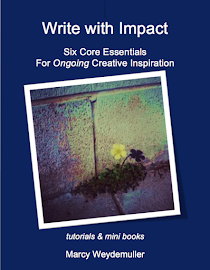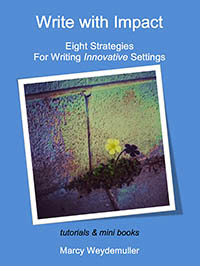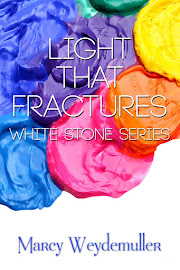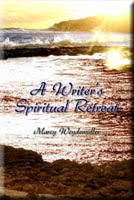Thursday, May 31, 2018
Journal With Impact: Family Reunions
Workshop:
Six Conversations for Writing Creative
Journals
“Memories
are created by what we do not by what we think.” Byron Pulsifer
What
family memories mean the most to you? Have you asked other family members what
they remember? Family reunions are a natural opportunity to bring up family
stories, but not always the best time to go deeper.
Yet
it is a good way to capture events that might otherwise go unnoticed.
Photographs and videos and art sketches help to capture the immediate
conversations, yet usually there is some back-story as well. Family gatherings can be a great source to begin to gather memories that otherwise would be lost.
Look
for ways to ask the older generation questions and record them when possible.
Or consider trying to do a group memory of a particular incident.
If
talking about family history while at the reunion is not appropriate, then set
up appointments either in person, or by phone, and do mini interviews. Ask fun
questions such as how did you get your name? And how did their name be a
positive, or negative, or neutral, experience growing up? Did it get twisted into
nicknames?
Or
search out the Family “secrets.” Was the person with the reputation really a
black sheep or just different from the others? What happens if it’s revealed
that another relative was living a lie?
Additional
Applications
Consider
mentors as well who have contributed to life wisdom, faith walk, or your
vocational field and set up questions and interview with them too.
“Memories,
important yesterdays, were once today’s. Treasure and notice today.”
Gloria Gaither
Action
Steps: Here
are a few interview tips to get started.
1. Be specific about what you want to discuss
before you meet in person.
2. Prepare a list of possible questions and
leave the most difficult questions to the end.
3. Be prepared to listen rather than trying
to keep your agenda.
4. Focus on one or two aspects.
5. Pay attention to body language and other
silent responses.
Share: Did you
discover a memory that turned out to be different from the reality?
Read deep, marcy
Labels:
Family Reunions,
Free blog workshop,
Journal with Impact,
Six Conversations,
Writing Creative Journals
Thursday, May 24, 2018
Journal With Impact: Family Heirlooms
Workshop:
Six Conversations for Writing Creative
Journals
“Take
care of all your memories. For you cannot relive them.” Bob Dylan
Family Heirlooms
Write
down what you or other family members pass along through generations, either of
value or humorous. Some of our Christmas ornaments seemed a bit odd after a few
generations.
Why
do some items become so special that there is conflict over who inherits it? Or
is something a complete mystery?
One
item that my youngest aunt saved for me from my paternal grandmother was a
christening gown, made of intricate lace and exquisite needlework. Each child
in the family had worn it, and I was the last to inherit it. How she came upon
such a rich garment from a very low working-class background was a secret that
no one knew the answer to. But it traveled across the ocean with her and was used
for the christenings of her next three children born in her new country.
Choose
one particular item and catalog it as if a museum piece. Send out letters
asking siblings or cousins what stories they remember and then put them all
together as a collection.
Action
Steps:
1. What heirloom has a secret?
2. Is it dangerous?
3. What damage could it do to present
relationships?
Share: What item
did you choose?
Read deep, marcy
Labels:
Family,
Free blog workshop,
Heirlooms,
Journal with Impact,
Six Conversations,
Writing Creative Journals
Thursday, May 17, 2018
Journal With Impact: Family History
Workshop:
Six Conversations for Writing Creative
Journals
“Memories
are the key not to the past, but to the future.” Corrie ten Boom
Family Stories
Some
family stories are repeated every time relatives get together. Sometimes as an
icebreaker, or common ground, or a particular incident that no one wants
forgotten. Perhaps to reflect an incident of pride or, unfortunately, to
nurture a grudge. And like the telephone whisper game the reality at the beginning
may not be what is still being passed down through the generations.
Or
to clear perspective. A cousin and I talked recently about one of our
relatives. Because she is older than me she knew more details of an incident
that I, as a five-year-old at the time, had heard but not fully understood. In
turn, I was able to share a later update in my teens, which she had not been
aware of. Between the two of us we realized a huge gap had existed for both of
us. And the reality gave us both a fresh perspective.
Journal
Sources
Some
places to look to fill in the gaps or jog your own stories are photo albums,
especially those that include anecdotes or vignettes. Look for those both with
or without stories, autobiographies and biographical sketches. Look to see if
any family members kept a memory book, either as an individual or for the whole
family.
Is
there a family tree or special notes in a family Bible? Did anyone keep a
record of archives? Sometimes even a day-today diary that only lists chores or
business can open up a picture of the past no one was aware of or had
forgotten.
Past. Think of a specific relative in your past. What do you wish you
knew about their particular circumstances or their feelings?
I knew at
some point in my life that my paternal grandmother had crossed the Atlantic in
1911 to join her husband. She had three young children under the age of ten.
Yet the full concept didn’t connect with me until I saw a ship from that era
and the unit size she and the children would have occupied. I was stunned at
the deprivation and wished I could know more about her courage to immigrate.
All I had of her were a few pictures.
Future. Write a
letter to a grandchild or great grandchild, niece or nephew in the future. What
do you want them to know about their family—what do you feel is so important
that it must be remembered?
Action
Steps:
1. Make a list of some key relatives in your
past. Then choose two from different generations and write a letter to them.
2. Put it aside and then re-read the following
day. Were you surprised at some of your questions? Did you think of some more?
3. Now write one to a future family member.
Again leave overnight and revisit. And surprises?
Share: What has
been a special story that has been passed along to you?
Labels:
Family History,
Free blog workshop,
Journal with Impact,
Six Conversations,
Writing Creative Journals
Thursday, May 10, 2018
Journal With Impact: Family Memories
Workshop:
Six Conversations for Writing Creative
Journals
“Memories,
all those little experiences make up the fabric of our lives and on balance, I
wouldn’t want to erase any of them, tempting though it may be.”
Ben Affleck
Journal
Note
For a few minutes write down your feelings of highs and lows over your
most recent holiday. Then go back through and put a circle around your
blessings with family. Next put a box around any lows. Were the lows connected
with personal issues, fatigue, time constraints, or family members?
Write down in the margin any follow-up contact promises you made to
anyone. Next time you sit down with your calendar mark them on a to-do list.
Since my family is now grown, any time we can get together is pure joy
for me, as well as extra exhaustion—not from any additional schedules but from
visiting and trying to catch up. Often I can feel guilty or sad afterwards
because we only have time for surface conversation, and it’s not always
possible to get to heart matters—to connect and build the new stages of
relationships as we all continue to mature into new seasons of life.
At the same time the interaction of having “all my peoples together,” as
my young grandson has said since he turned two, is so enriching as I listen to my
loved ones relating to each other and sharing their favorite childhood
memories.
Taking time to remember all the little details helps us to see our
heritage in a story framework rather than dates and facts. The memories become woven
into meaning.
Action
Steps: Learning
To Remember
1. Make a list of what you do remember.
2. Make a list of what you don’t remember. For
example, I have an almost photographic memory of my kitchen when I was five
years old, but without any memory at all of any smells in it.
3. What is a memory in your life that you
keep going back to? Look for one or two sharp details. Write it up as a
mini-vignette either in prose or poetry or a letter.
Share: What
particular detail stood out for you?
Read deep, marcy
Labels:
Family,
Free blog workshop,
Journal with Impact,
Memories,
Six Conversations,
Writing Creative Journals
Thursday, May 3, 2018
Journal With Impact: Family
Workshop:
Six Conversations for Writing Creative
Journals
“The
beautiful thing about memories is that they are yours; whether they are good,
bad, or indifferent. They belong to you, and no matter where you are now.”
Unknown
Family
Journals
Journaling about family, or with family, can help cement memories as well
as build new bridges. And family may, or may not, or both, be only biological,
but can also be the people who have become your chosen family over the years,
regardless of geographic distance.
The
interactions of past and present can impact our daily choices emotionally in
ways we sometimes don’t recognize at first, because they are automatic signals
that often we have forgotten, or are too busy to investigate. Taking time to
journal family matters helps us find threads both for ourselves personally now,
or as preparation for family memoirs, and as a basis to develop fictional
characters for writers.
Inheritance
goes far beyond any physical and financial categories. It involves
personalities, talents, humor, values, faith, commitments, and perceptions.
There are
three main areas in which family journaling is most effective: Family history,
family vacations, and family communications. All three have parts which enable
us to see what is strong in communication and connection, and, or, what is
missing and perhaps why. Once again the exercises for each category overlap and
can be interspersed.
Action
Steps:
1. What inheritance from your family have you
most cherished?
2. What inheritance have you most been
plagued, or challenged to change?
Share: Which of
these memories surprised you?
Read deep, marcy
Labels:
Family,
Free blog workshop,
Journal with Impact,
Six Conversations,
Writing Creative Journals
Subscribe to:
Posts (Atom)








